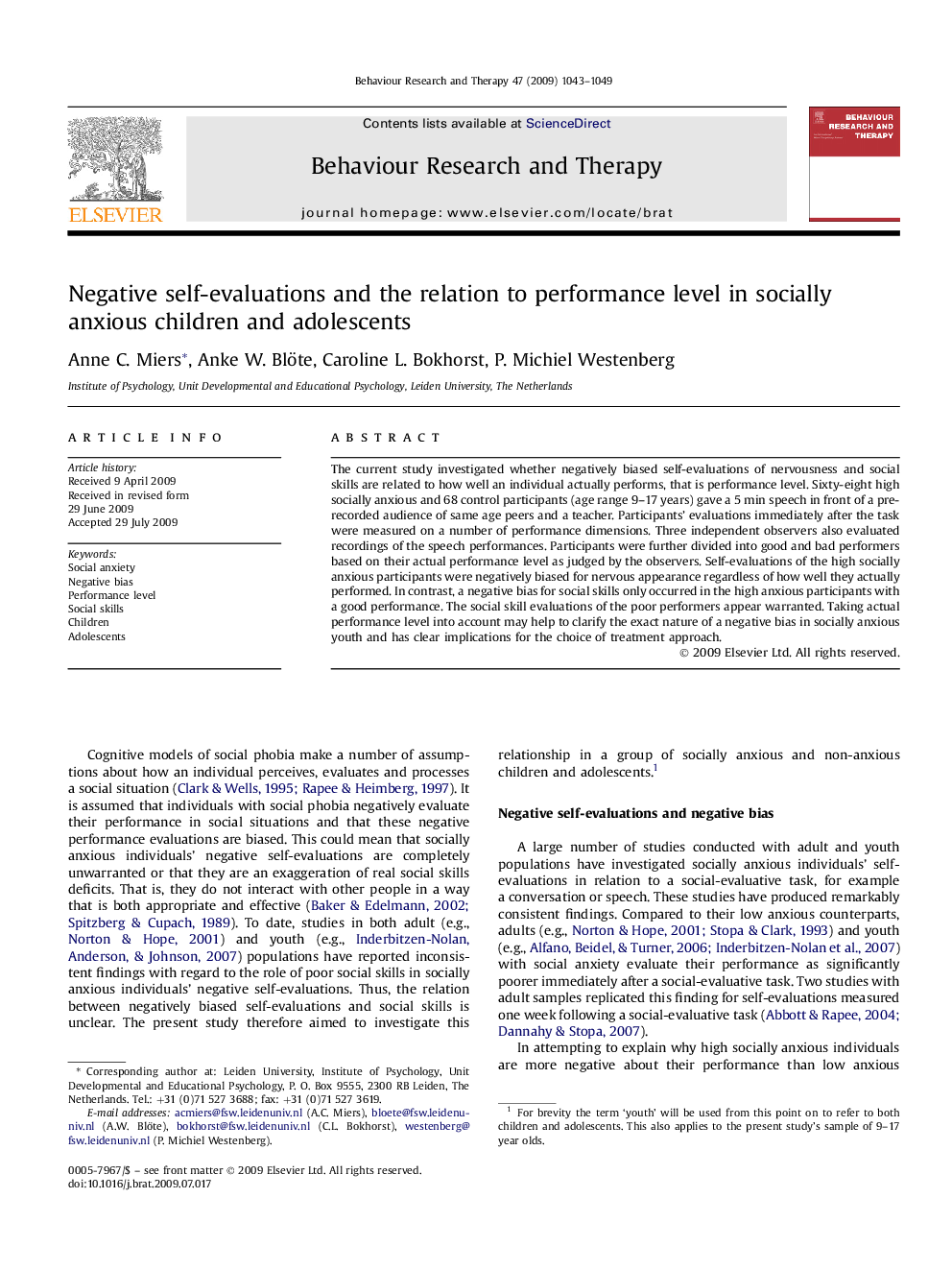| Article ID | Journal | Published Year | Pages | File Type |
|---|---|---|---|---|
| 902159 | Behaviour Research and Therapy | 2009 | 7 Pages |
The current study investigated whether negatively biased self-evaluations of nervousness and social skills are related to how well an individual actually performs, that is performance level. Sixty-eight high socially anxious and 68 control participants (age range 9–17 years) gave a 5 min speech in front of a pre-recorded audience of same age peers and a teacher. Participants' evaluations immediately after the task were measured on a number of performance dimensions. Three independent observers also evaluated recordings of the speech performances. Participants were further divided into good and bad performers based on their actual performance level as judged by the observers. Self-evaluations of the high socially anxious participants were negatively biased for nervous appearance regardless of how well they actually performed. In contrast, a negative bias for social skills only occurred in the high anxious participants with a good performance. The social skill evaluations of the poor performers appear warranted. Taking actual performance level into account may help to clarify the exact nature of a negative bias in socially anxious youth and has clear implications for the choice of treatment approach.
